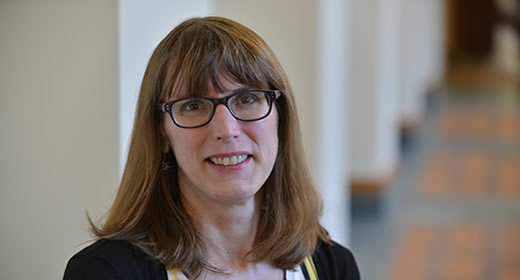
The Great Recession leaves behind the largest number of long-term unemployed people, or 4.7 million, since records were first kept in 1948, according to research from the University of Michigan.
"About 46 million Americans, according to our latest count, are poor. That means for a family of four, they're living on less than $23,000 a year," said sociologist Kristin Seefeldt, assistant professor at the U-M School of Social Work and affiliated with the Ford School of Public Policy. "This is the highest rate of poverty that we've had in about 15 years."
Seefeldt's research with John Graham of Indiana University focused on the safety net for the poor and how it performed during the recession.
Some programs worked, such as federal food programs and Medicaid, while federal cash assistance for the nondisabled poor and federal housing programs did not respond much to the burgeoning numbers of families in need of help.
Charitable donations for programs that service the poor declined abruptly during the recession and have not yet recovered. Fiscal pressures on government may lead to cutbacks in programs that assist the poor.
"Low-income Americans may prove to be more vulnerable during the slow recovery from the Great Recession than they were at lowest point of the downturn," Seefeldt said.
Seefeldt and Graham suggest several fixes in the book including a modernization of the Temporary Assistance for Needy Families and the Unemployment Insurance programs and the creation of an automatic link between the size of block grants to states and trends in the business cycle.
"More than anything else, what is needed is a rapidly growing economy," Seefeldt said. "A more robust recovery will help the poor, stimulating philanthropic giving and reducing the temptations of politicians to cut spending for the safety net."
The research was spurred by a request from PBS radio host Tavis Smiley. It has recently been expanded and published as a book titled "America's Poor and the Great Recession."
